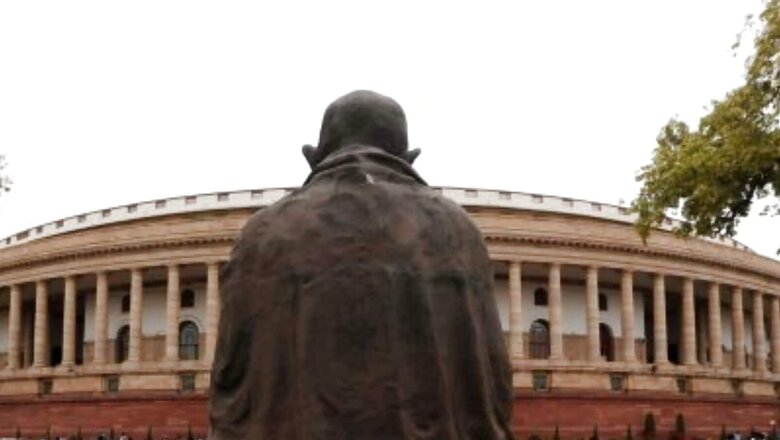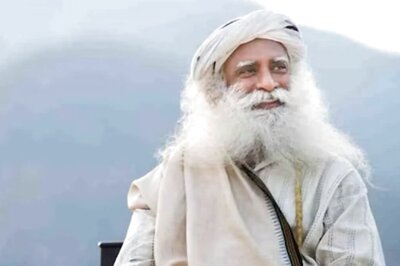
views
Uttarakhand chief minister Pushkar Dhami has promised that if re-elected, his government would bring Uniform Civil Code. BJP leaders welcomed the move. Some ‘experts’ said Uttarakhand would be the second such state after Goa to do so. Article 44 of the Constitution says that ‘state shall endeavour to secure for citizens a uniform civil code throughout the territory of India’.
Uniform Civil Code or UCC essentially refers to a common set of laws governing personal matters such as marriage, divorce, adoption, inheritance and succession. As per Schedule VII of the Constitution, such subjects come in the Concurrent List (Entry No. 5), wherein power to legislate rests with both Parliament and state legislatures. Accordingly, the state legislature may introduce amendments to the personal laws enacted by Parliament, but it cannot be stretched to include the enactment of a UCC for a particular state.
As per Article 12 of the Constitution, ‘State’ includes central and state governments. As per that authority, if Uttarakhand or any other state government brings any such legislation, it would require Presidential assent under Article 254 of the Constitution. Uniform Civil Code can only be brought by parliamentary legislation as is clear from government reply before courts and Parliament. Article 44 of the Constitution mandates UCC throughout the territory of India, which was confirmed by Law Minister Kiren Rijiju in February 2022. This constitutional position is further confirmed by the manifestoes released by the BJP. For instance, UCC was part of the BJP’s manifesto for the 2019 General Elections but was not specifically highlighted in the BJP manifesto for the Uttarakhand Assembly Election. In the case of Goa, it must be understood that UCC was in existence before it became part of India.
As Per Government Affidavit, UCC is in Parliamentary Domain
A PIL by BJP leader Ashwini Upadhyay to formulate UCC was filed before the Delhi High Court in 2019. After more than two years, the Ministry of Law and Justice filed a 12-page affidavit, as per which only Parliament can undertake the task of drafting legislation on UCC. Central government further stated that it will consult various stakeholders involved in the matter, after receiving a report from the Law Commission of India.
The Union government urged the High Court to refrain from passing any judicial orders, as per the scheme of separation of powers wherein courts have no jurisdiction on such matters of legislation. It stated, ‘UCC will strengthen integration of India by bringing communities on the common platform on matters which are at present governed by diverse personal laws’. However, the affidavit was silent on how much time the government will take to bring Uniform Civil Code.
ALSO READ | Why It is Wrong to Equate Legitimate Hindu Concerns With a Political Party’s Agenda
Parliament and the Law Commission on UCC
Union Law Minister Kiren Rijiju in his written response to a parliamentary question raised over UCC said that in view of the importance of the subject matter, the sensitivity involved and the fact that it requires an in-depth study of the provisions of various personal laws governing different communities, UCC was referred to the Law Commission. A proposal to examine issues relating to Uniform Civil Code and make recommendations was forwarded to the Law Commission in June 2016.
The 21st Law Commission headed by Justice B.S. Chauhan came out with a consultation paper on ‘Reform of Family Law’. As per this paper, UCC is neither necessary nor desirable. The Commission stressed on removing discrimination against women within communities rather than looking for equality between communities in terms of family law. “In doing so, the commission has endeavoured to best protect and preserve diversity and plurality that constitute the cultural and social fabric of the nation,” the Law Commission noted. Referring to the diversity of personal laws in India, the Law Commission noted, “While diversity of Indian culture can and should be celebrated, specific groups, or weaker sections of the society, must not be dis-privileged in the process. Resolution of this conflict does not mean abolition of difference. This commission has therefore dealt with laws that are discriminatory, rather than providing a uniform civil code, which is neither necessary nor desirable at this stage.”
“In the absence of any consensus on a uniform civil code, the commission felt that the best way forward may be to preserve the diversity of personal laws but, at the same time, ensure that personal laws do not contradict fundamental rights guaranteed under the Constitution of India,” it said. However, the term of the 21st Law Commission ended in August 2018. The 22nd Law Commission was notified on February 24, 2020 but the post of chairperson has been lying vacant. The 22nd Law Commission has tenure of three years and will get little time to delve into the UCC.
Directive Principles and Supreme Court
Uniform Civil Code is part of the Directive Principles of State Policy, as per the Constitution. Article 37 of the Constitution states that Directive Principles are “fundamental in the governance of the country and it shall be the duty of the State to apply these principles in making laws”. However, unlike fundamental rights, neither the courts can enforce directive principles if there is a violation, nor can citizens approach courts demanding their implementation.
In the Minerva Mills case, the Constitution Bench of the Supreme Court held that fundamental rights must be harmonised with directive principles and such harmony is one of the basic features of the Constitution. In Shah Bano Begum case, Chief Justice Y.V. Chandrachud observed that Parliament should outline the contours of a common civil code as it is an instrument that facilitates national harmony and equality before the law. In 1995, in the Sarla Mudgal case, the Supreme Court said, “When more than 80 per cent of the citizens have already been brought under the codified personal law there is no justification whatsoever to keep in abeyance, any more, the introduction of ‘uniform civil code’ for all citizens in the territory of India.”
In October 2015, the apex court revived the debate over UCC when it pointed to “total confusion” over the incoherent stipulations about marriage, divorce, adoption, maintenance and inheritance among different religions. However, in December 2015, another bench of the court turned down a PIL stating that a mandamus (directive) cannot be issued to the government to legislate on the UCC. In 2019, the top court again expressed its disappointment over lack of UCC: “Whereas the founders of the Constitution in Article 44 in Part IV dealing with the Directive Principles of State Policy had hoped and expected that the State shall endeavour to secure for the citizens a Uniform Civil Code throughout the territories of India, till date no action has been taken in this regard.”
ALSO READ | Nehru Avoided Uniform Civil Code because Muslims were ‘Not Ready’. 70 Years On, Right Time for UCC is Now
Despite being in the Parliamentary domain, the Supreme Court continues to entertain various PILs covering key subjects of UCC. The apex court has issued notice to the government on the need for uniform laws for all citizens across religious faiths on matters of divorce, maintenance, alimony, adoption, guardianship, succession and inheritance. In July 2021, Justice Pratibha M. Singh of Delhi High Court observed: “In modern Indian society, which is gradually becoming homogenous, the traditional barriers of religion, community and caste are slowly dissipating.” She said that Uniform Civil Code (UCC) should not “remain a mere hope”.
As these arguments show, it is clear that it is Parliament that needs to take up Uniform Civil Code, and not state legislature. Any claim to the contrary is a mere illusion and not a credible effort towards fulfilling the goals of the Constitution.
Virag Gupta is a columnist and advocate. He can be followed @viraggupta. The views expressed in this article are those of the author and do not represent the stand of this publication.
Read all the Latest Opinion News and Breaking News here



















Comments
0 comment